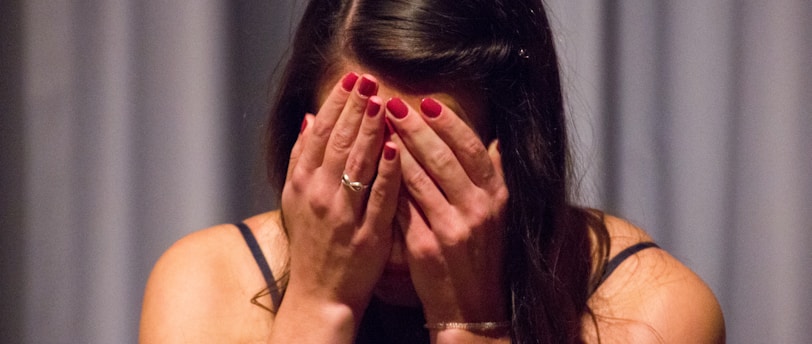Dynamics of Shame and Binge Eating
Let's delve into the intricate dynamics of shame and binge eating, exploring how they intersect and influence one another.
PSYCHOLOGYEMOTION


The Complex Relationship Between Shame and Binge Eating
Understanding the relationship between shame and binge eating is crucial in addressing the underlying factors contributing to disordered eating behaviors. In this post, we will delve into the intricate dynamics of shame and binge eating, exploring how they intersect and influence one another.
What is shame?
Shame is this messy emotion that can make you feel like you're not measuring up, like you're somehow flawed or not good enough. You know when you make a mistake and feel bad about it? That's guilt. But shame? It's deeper than that. It's like feeling bad about who you are, not just what you've done. It's feeling like there's something wrong with you as a person.
Now, imagine you're at school or at work, and you get a question wrong. Feeling guilty would be thinking, "Oops, I should have studied more." Feeling shame, though, might make you think, "I'm so stupid. I'll never get anything right." See the difference?
Now, this feeling of shame can show up in different ways. One common way is feeling bad about your body, which we call body shame. t's not just about wishing you looked different; it's a lot deeper than that. Body shame is when you look in the mirror and instead of seeing yourself, you see all the things you wish you could change. Maybe you're unhappy with your shape, your size, or how your clothes fit. It's this constant feeling of not measuring up to some idealized standard of beauty or perfection.
The Vicious Cycle: Shame and Binge Eating
The relationship between shame and binge eating is characterized by a vicious cycle, where each exacerbates the other, creating a detrimental feedback loop. Individuals grappling with shame may turn to binge eating as a maladaptive coping mechanism to numb or distract themselves from the overwhelming emotional distress associated with shame.
On the other hand, engaging in binge eating can further intensify feelings of shame and self-loathing. The loss of control during a binge eating episode can fuel a profound sense of inadequacy and failure, perpetuating the cycle of shame and reinforcing negative self-perceptions.
Addressing Shame in Binge Eating Recovery
Recognizing and addressing shame is a pivotal aspect of supporting individuals in their journey towards overcoming binge eating behaviors. By fostering a compassionate and non-judgmental environment, individuals can begin to unpack the underlying shame that fuels their disordered eating patterns.
Therapeutic interventions, such as cognitive-behavioral therapy (CBT) and dialectical behavior therapy (DBT), play a crucial role in helping individuals challenge and reframe their shame-based beliefs. Through these modalities, individuals can develop healthier coping strategies and cultivate self-compassion, ultimately breaking free from the shame-driven cycle of binge eating.
By shedding light on the intricate interplay between shame and binge eating, we can foster greater understanding and empathy for individuals navigating these challenges. Through targeted interventions and a supportive community, individuals can embark on a path towards healing and liberation from the grips of shame and disordered eating behaviors.
